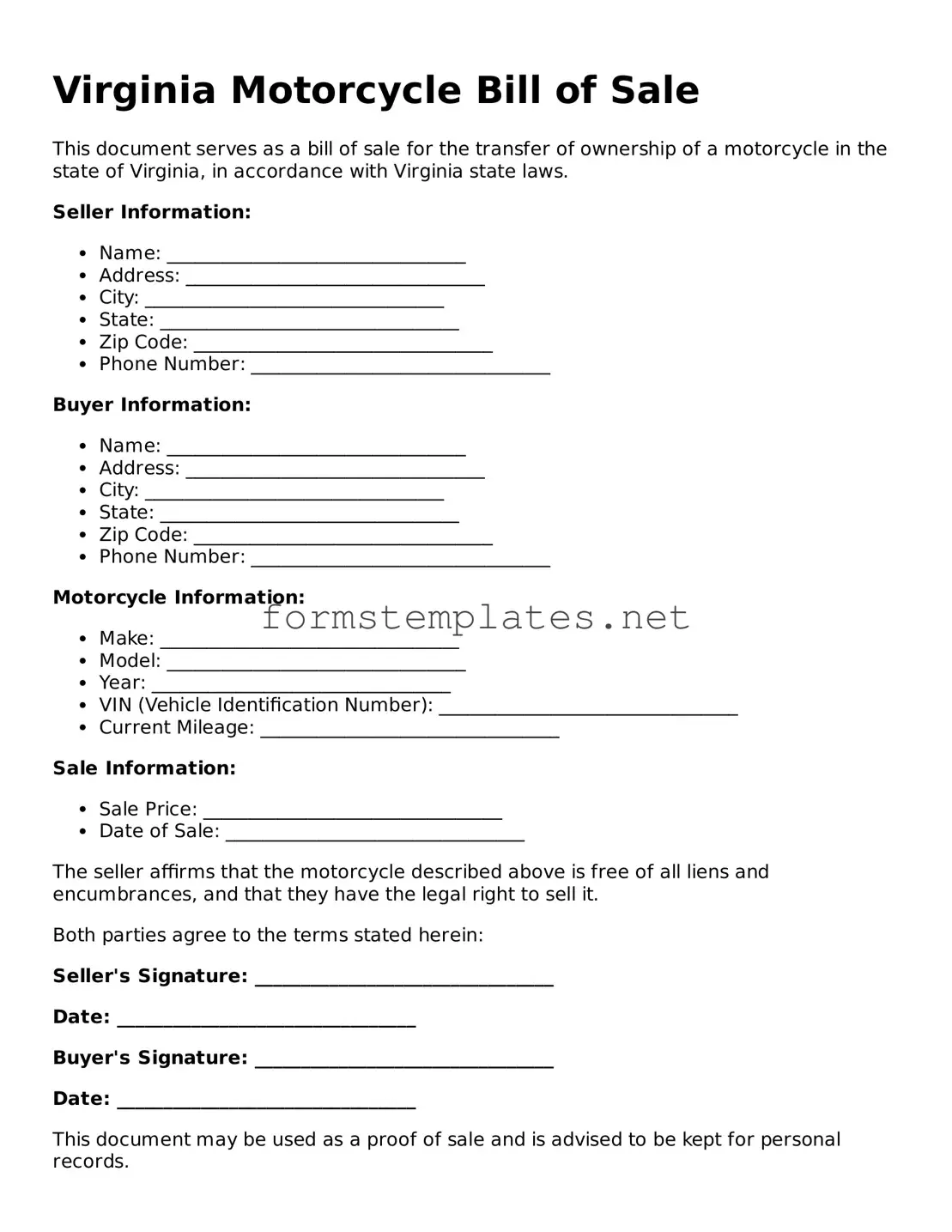Attorney-Approved Virginia Motorcycle Bill of Sale Template
The Virginia Motorcycle Bill of Sale form is a legal document that records the transfer of ownership of a motorcycle from one party to another. This form serves as proof of the transaction and includes essential details about the motorcycle and the buyer and seller. Proper completion of this form is crucial for ensuring a smooth registration process with the Virginia Department of Motor Vehicles.
Open Editor Now

Attorney-Approved Virginia Motorcycle Bill of Sale Template
Open Editor Now

Open Editor Now
or
⇓ PDF Form
Your form still needs attention
Finalize Motorcycle Bill of Sale online — simple edits, saving, and download.